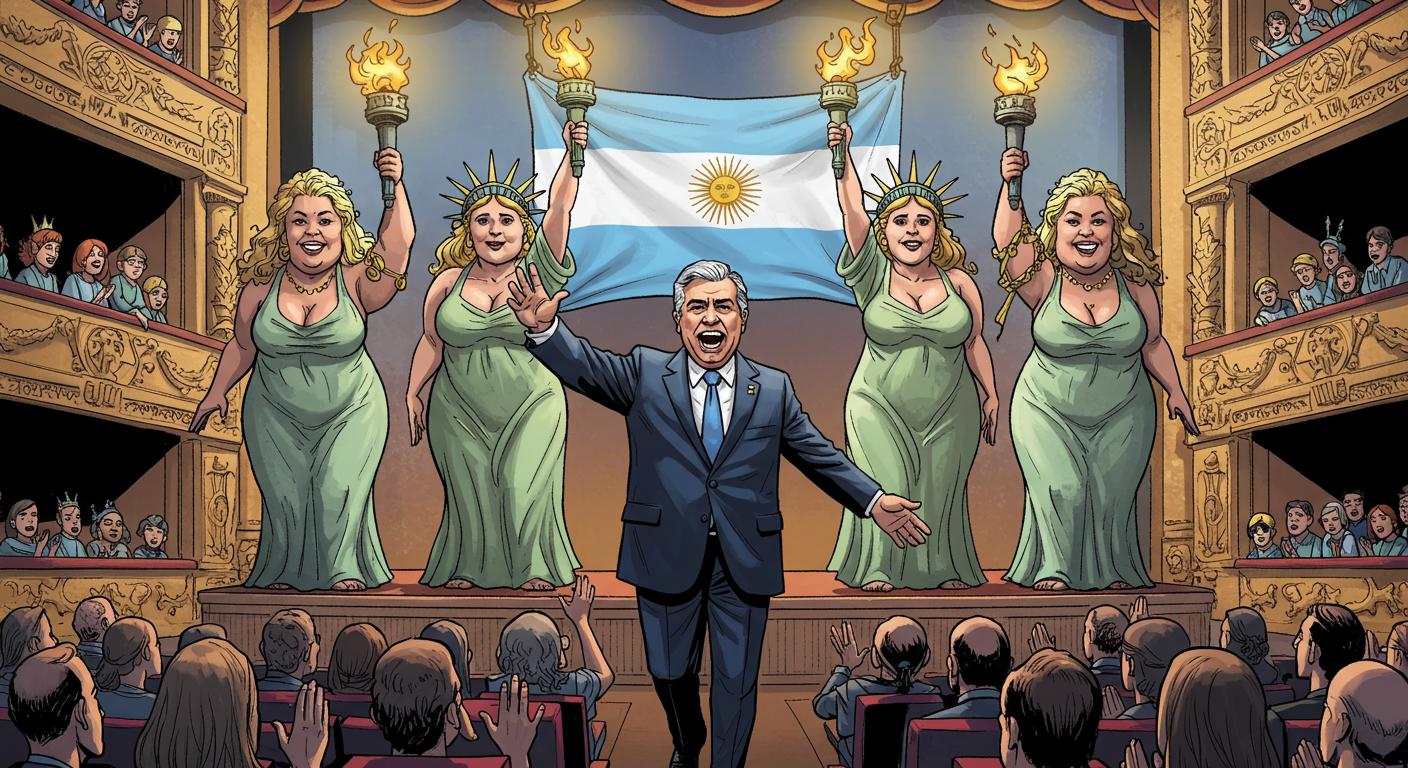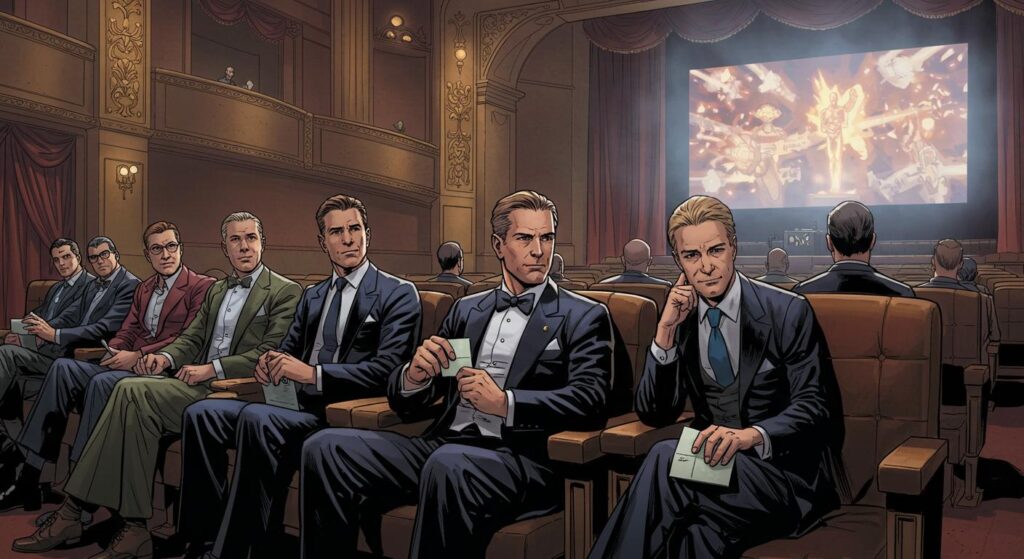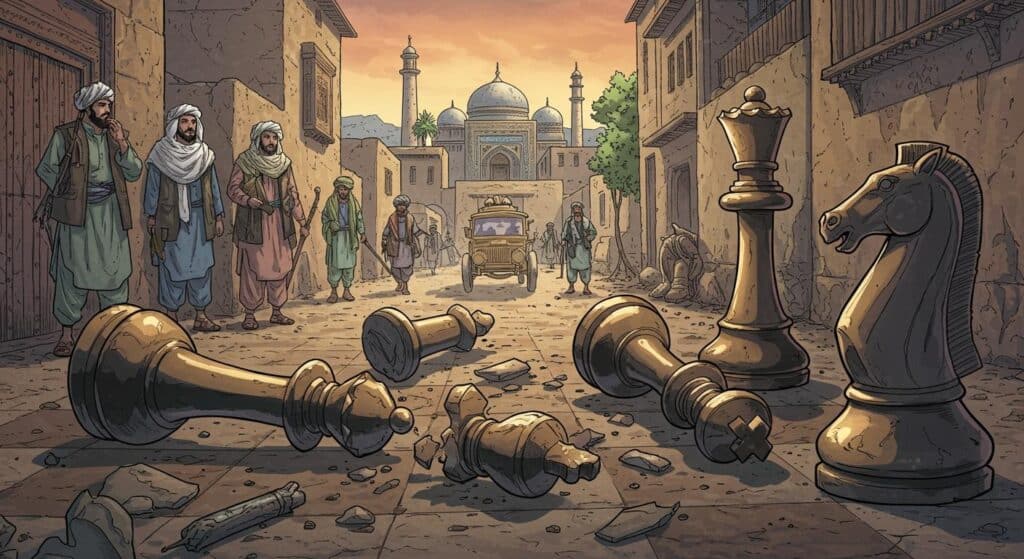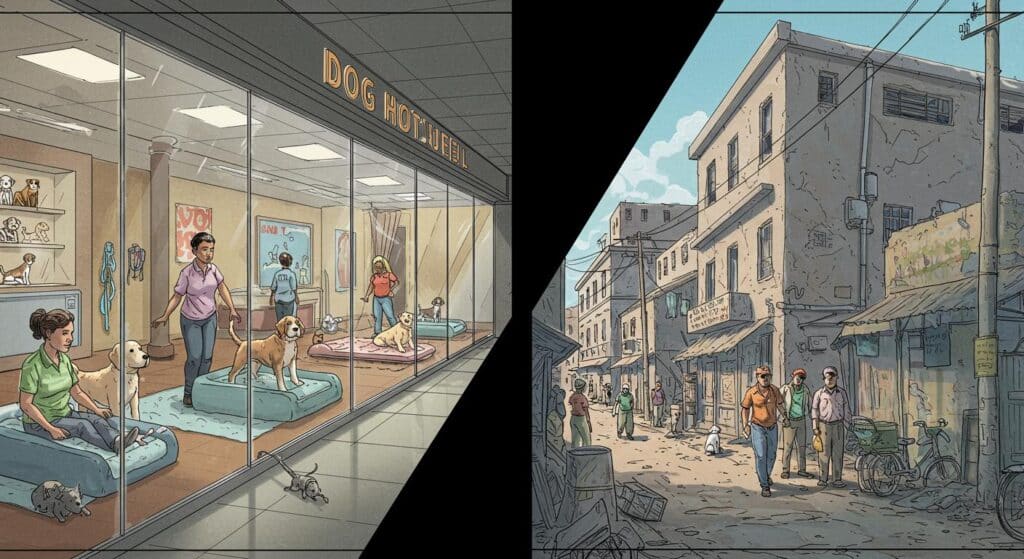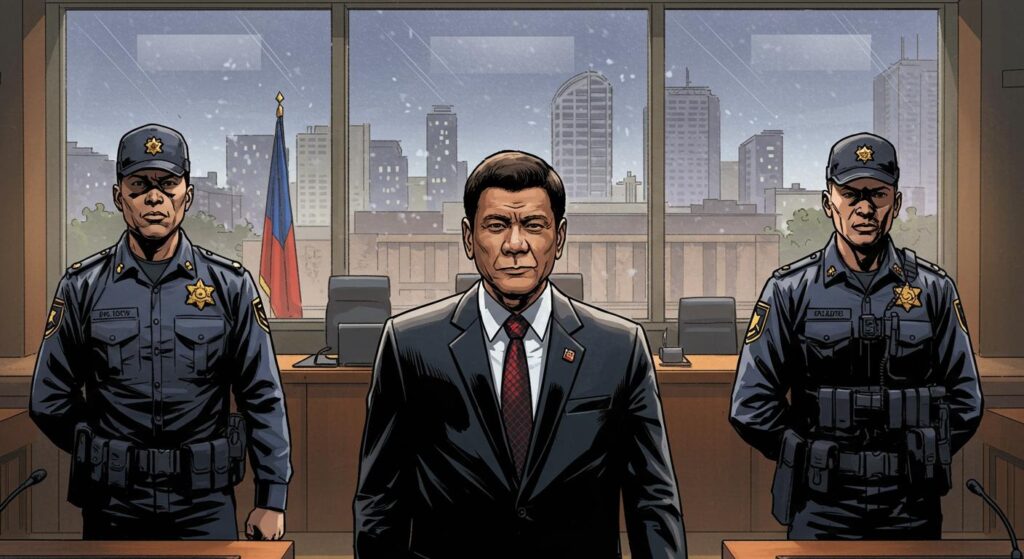If you’ve ever wanted to see a sitting president mount a legal defense of capitalism—flanked by “voluptuous blondes dressed as the Statue of Liberty”—you may want to keep an eye on Argentina, where President Javier Milei, never one to favor the ordinary, appears determined to keep politics as lively as possible.
Liberties, Laughter, and Charity on the Menu
Details emerging from a sprawling six-hour streaming interview (an event in itself), reported by Perfil, paint a scene that feels equally at home in a political satire and an avant-garde playbill. Milei revealed plans for a new theater production titled “Juicio al capitalismo” (“Capitalism on Trial”). Here, he’ll adopt the role of capitalism’s defense lawyer, while Diego Sucalesca—Milei’s long-time collaborator, now serving in the government’s Investment Agency—steps in as the prosecutor. Complicating the staging is the deliberate, and unapologetic, addition of “rubias voluptuosas” (thicc blondes) dressed up as Statues of Liberty, a visual detail that managed to make both the studio host and, presumably, much of Argentina do a double take.
The president added that this spectacle will serve a charitable cause—the proceeds are promised to Hospital Garrahan, a major children’s hospital. Milei emphasized in the interview that the show’s goal is to “use my popularity for a good cause.” Parisini, the interviewer, seemed briefly stumped when Milei suggested the performance might take place at “The Berlin Wall” (“El Muro de Berlín”), which unexpectedly turned the segment into a kind of comedic geography quiz, as Perfil recounts with a note of lingering amusement.
Milei’s Ongoing Affair with the Stage
For those surprised at this blend of high camp and economic advocacy, a glance back offers some explanation. Milei isn’t new to the stage: his first production, “El consultorio de Milei,” was apparently a minor hit along Argentina’s Atlantic resort circuit, according to details highlighted by Perfil. In that earlier show, he dispensed economic advice as a mock psychologist, fielding questions from everyday Argentines—portrayed by Sucalesca—while humor and satire were delivered by local comic Claudio Rico, who impersonated a gallery of political and media personalities.
In the earlier interview recalled by the outlet, Milei described his stage work as an experiment in making economic ideas more accessible, noting that “the ideas of liberty are for everyone, not just an elite.” He positioned humor as a gateway to public understanding, even suggesting that his approach rankled other politicians more than average citizens.
The outlet also notes that, in Milei’s own words, the show was “an economics talk with humor… so everyone could understand easily.” There’s a self-aware thread running through these comments: he seems quite content to use entertainment as a Trojan horse for laissez-faire messaging, even if some critics grumble about the spectacle.
Politics, Performance, and the Ongoing Experiment
It’s hard not to marvel a little at how firmly the lines between public office and public performance are blurred here. The staging of capitalism’s defense, complete with spectacle and tongue-in-cheek pageantry, leaves one pondering what expectations of presidential decorum really mean—or if, in the age of streaming and stagecraft, such definitions still matter.
Earlier in the Perfil report, it’s mentioned that the president’s previous ventures into show business generated a lot of public affection, and even admiration for his willingness to say things plainly. There is, apparently, a market for this kind of populist theater—a market Milei seems quite willing to serve, on his own terms.
Whether the parade of Statues of Liberty provokes raucous laughter, earnest debate, or just head-scratching confusion, it’s clearly designed to get attention. The charitable aspect might soften, if not wholly justify, the eccentricity for skeptics. But for those watching from afar—or perhaps scrolling through a list of the world’s stranger leadership moments—one can only wonder what’s next.
Can presidential theater really make economic policy fun, or is this spectacle a uniquely Argentine form of catharsis? When the curtain rises on “Juicio al capitalismo,” will it be the ideas, the actors—or the costumed Liberties—that leave the lasting impression?
In Argentina, apparently, the line between politics and performance isn’t just thin—it features a spotlight, a punchline, and, now, a promise that at least some proceeds will go to a good cause.

